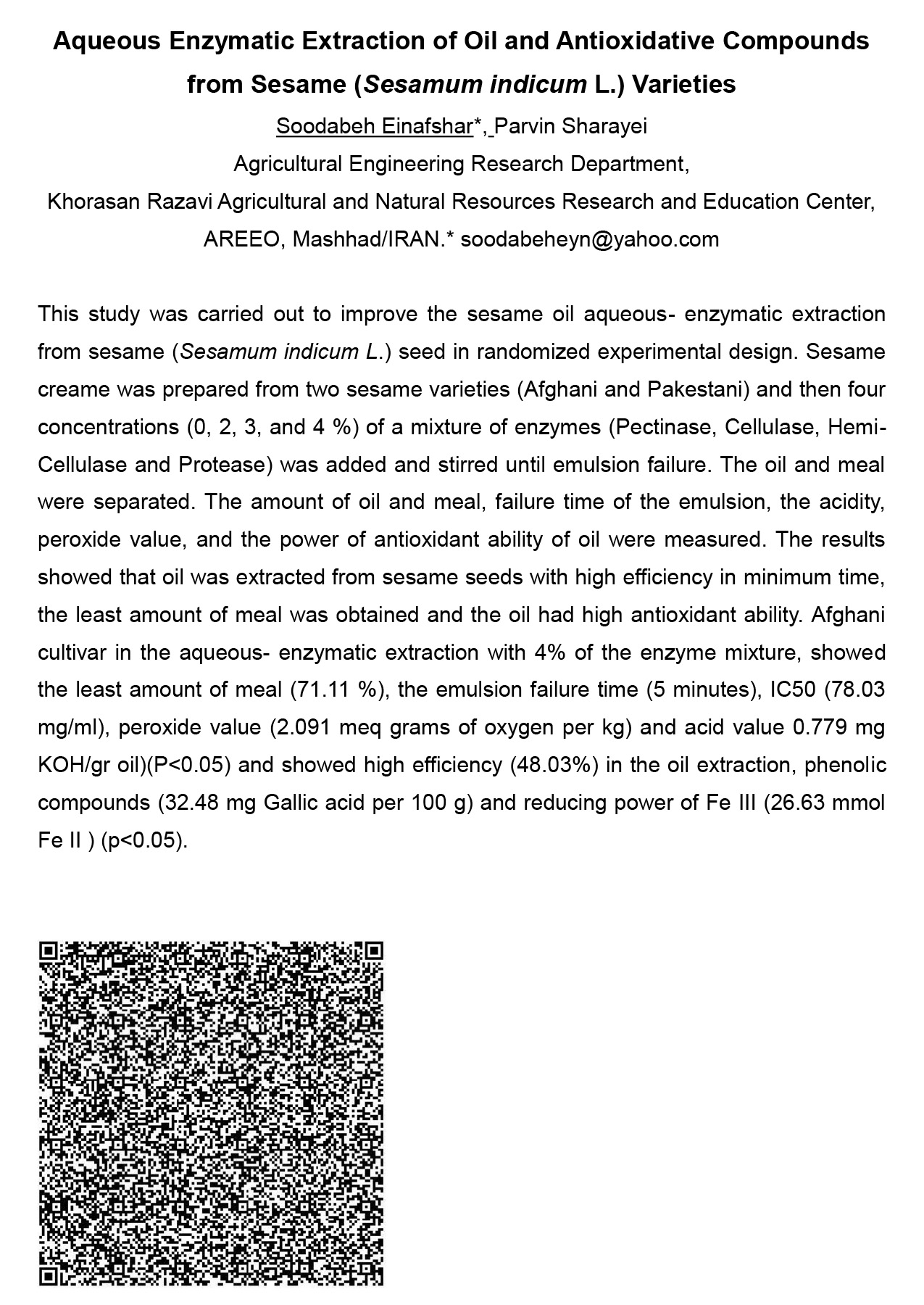This study was carried out to improve the sesame oil aqueous- enzymatic extraction from sesame (Sesamum indicum L.) seed in randomized experimental design. Sesame creame was prepared from two sesame varieties (Afghani and Pakestani) and then four concentrations (0, 2, 3, and 4 %) of a mixture of enzymes (Pectinase, Cellulase, HemiCellulase and Protease) was added and stirred until emulsion failure. The oil and meal were separated. The amount of oil and meal, failure time of the emulsion, the acidity, peroxide value, and the power of antioxidant ability of oil were measured. The results showed that oil was extracted from sesame seeds with high efficiency in minimum time, the least amount of meal was obtained and the oil had high antioxidant ability. Afghani cultivar in the aqueous- enzymatic extraction with 4% of the enzyme mixture, showed the least amount of meal (71.11 %), the emulsion failure time (5 minutes), IC50 (78.03 mg/ml), peroxide value (2.091 meq grams of oxygen per kg) and acid value 0.779 mg KOH/gr oil)(P<0.05) and showed high efficiency (48.03%) in the oil extraction, phenolic compounds (32.48 mg Gallic acid per 100 g) and reducing power of Fe III (26.63 mmol Fe II ) (p<0.05).
